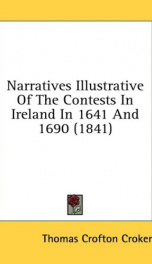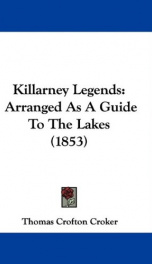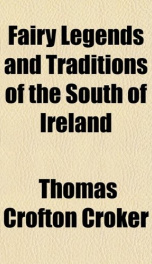popular songs of ireland

Purchase of this book includes free trial access to www.million-books.com where you can read more than a million books for free. This is an OCR edition with typos. Excerpt from book: ST. PATRICK WAS A GENTLEMAN. The purgation of Ireland from noxious animals has been the subject of the old alliteration " Ubi nulla venena veniunt, nee serpens serpit in herba;" and this, the most famous of the miracles of St. Patrick, is celebrated in the following song. The introductory verse assures us that St. Patrick was a gentleman. Moore, in the " History of Ireland," vol. i. p. 211, speaking of St. Patrick, merely says, " His family was, he informs us, respectable." This is mere modesty; and, as every Irish gentleman should have a pedigree, that of our Saint has been judiciously introduced by the lyrists to prevent any question about the gentility of one who has performed a noble act. . Jocelyn, indeedthough all that the monk of Furness asserts must not be received as gospelwould have us believe that St. Patrick's father, whose name he asserts was Calphurnius, married his servant-maid, a French damsel, who became the mother of our Saint. And we find the various biographers of St. Patrick claiming him as an Armoric Gaul, a Welshman, a Cornishman, a Scotch Highlander, and a Lowlander. But this is all nonsense. St. Patrick was an Irish gentleman. The Gallaghers were a family of consideration in Donegal; the Bradys were the same in Cavan ; the O'Shaughnessy, ditto in Galway ; and the O'Gradys " possessed that part of Clare which is now called the Barony of Bunratty." Vide " Irish State Papers," 1515, vol. ii. p. 3. This " respectable" pedigree settles the matter. Nor are authorities wanted to support the assertion that St. Patrick was an Irishman. Dempster, in his" Ecclesiastical History," states that the Irish contended for having St. Patrick as their countryman, and born in Ireland. Both Possevinus and Baronius, who, by interested parties, are represented to have be...
Users who have this book
Users who want this book
What readers are saying
What do you think? Write your own comment on this book!
write a commentif you like popular songs of ireland try:
Other books by this author
Do you want to exchange books? It’s EASY!
Get registered and find other users who want to give their favourite books to good hands!




